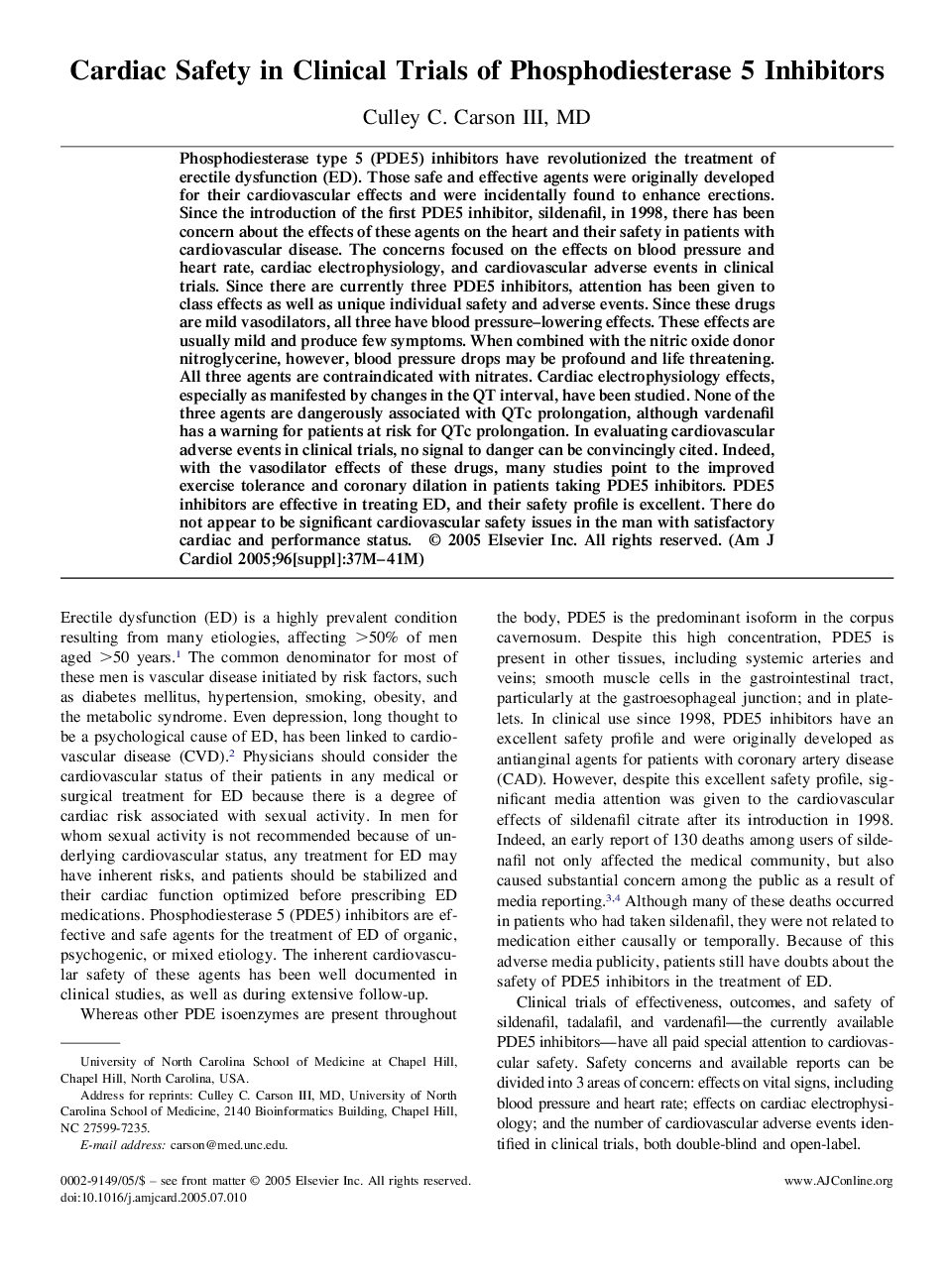| Article ID | Journal | Published Year | Pages | File Type |
|---|---|---|---|---|
| 9935874 | The American Journal of Cardiology | 2005 | 5 Pages |
Abstract
Phosphodiesterase type 5 (PDE5) inhibitors have revolutionized the treatment of erectile dysfunction (ED). Those safe and effective agents were originally developed for their cardiovascular effects and were incidentally found to enhance erections. Since the introduction of the first PDE5 inhibitor, sildenafil, in 1998, there has been concern about the effects of these agents on the heart and their safety in patients with cardiovascular disease. The concerns focused on the effects on blood pressure and heart rate, cardiac electrophysiology, and cardiovascular adverse events in clinical trials. Since there are currently three PDE5 inhibitors, attention has been given to class effects as well as unique individual safety and adverse events. Since these drugs are mild vasodilators, all three have blood pressure-lowering effects. These effects are usually mild and produce few symptoms. When combined with the nitric oxide donor nitroglycerine, however, blood pressure drops may be profound and life threatening. All three agents are contraindicated with nitrates. Cardiac electrophysiology effects, especially as manifested by changes in the QT interval, have been studied. None of the three agents are dangerously associated with QTc prolongation, although vardenafil has a warning for patients at risk for QTc prolongation. In evaluating cardiovascular adverse events in clinical trials, no signal to danger can be convincingly cited. Indeed, with the vasodilator effects of these drugs, many studies point to the improved exercise tolerance and coronary dilation in patients taking PDE5 inhibitors. PDE5 inhibitors are effective in treating ED, and their safety profile is excellent. There do not appear to be significant cardiovascular safety issues in the man with satisfactory cardiac and performance status.
Related Topics
Health Sciences
Medicine and Dentistry
Cardiology and Cardiovascular Medicine
Authors
Culley C. MD,
